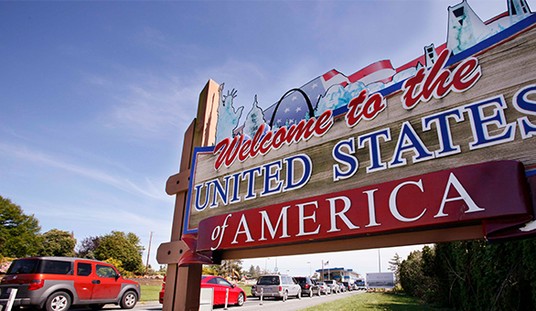Discussing the vapidity of pop culture in 2007, Mark Steyn wrote:
“Popular culture” is more accurately a “present-tense culture”: You’re celebrating the millennium but you can barely conceive of anything before the mid-1960s. We’re at school longer than any society in human history, entering kindergarten at four or five and leaving college the best part of a quarter-century later—or thirty years later in Germany. Yet in all those decades we exist in the din of the present. A classical education considers society as a kind of iceberg, and teaches you the seven-eighths below the surface. Today, we live on the top eighth bobbing around in the flotsam and jetsam of the here and now. And, without the seven-eighths under the water, what’s left on the surface gets thinner and thinner.
Until there’s nothing there at all. Behold the America education system summed up in two sentences:
Questioner: What was Auschwitz?
American College Student: I don’t know.
As part of her effort to promote her new Holocaust-themed novel 94 Maidens, Philadelphia-area TV personality Rhonda Fink-Whitman dropped in on the campuses of Penn State and Philadelphia’s Temple University, and asked the local college kids what they knew about the Holocaust and World War II. And based on the answers she received, as typed up by the Blogosphere’s Anchoress, Elizabeth Scalia, the answer is: not much.
Questioner: What was the Holocaust?
American College Student: Um…I’m on the spot.Questioner: Which country was Adolf Hitler the leader of?
American College Student: I think it’s Amsterdam?Questioner: What was Auschwitz?
American College Student: I don’t know.Questioner: What were the Nuremburg Trials?
American College Student: I don’t know.Questioner: How many Jews were killed?
American College Student: Hundreds of thousands.
When I was at St. Mary’s Hall in South Jersey in the 1970s, perhaps because so many of the teachers and parents were World War II veterans (including my own father), the basics of World War II was a perennial classroom subject. Around the mid-1970s, the Thames Television series The World at War seemed to play on a continuous loop on Philadelphia-area TV stations. Parents today wouldn’t go wrong in picking it up on DVD (or renting the discs from Netflix) and exposing their kids to the series again. Here are the first 13 minutes of “Genocide (1941–1945),” the 20th of the 26 episode series and the segment devoted to the Holocaust; the rest of the episode is available in bootleg form at Liveleaks:
It’s easy to say “Never Forget.” But take a couple of decades worth of academia’s political correctness, which transformed history from dates and places and events to a series of grievances and racial and gender-based animosities. (“Hey-hey, ho-ho, Western culture’s got to go,” a protest led by Jesse Jackson reportedly shouted at Stanford in 1987.) Add to that, Hollywood shifting World War II into a nihilistic and purposeless struggle. And more recently, the European Union wishing to metamorphize World War II into “The European Civil War” as a bit of ret-conned manifest destiny for the EU. Mix up that toxic cocktail, and it’s depressingly easy to see how we end up with the kids that Rhonda Fink-Whitman interviewed. Kids whose minds are so vacuous, they don’t even know what they’re supposed to avoid forgetting.
And who are old enough to vote, incidentally.
(Via SDA.)










Join the conversation as a VIP Member